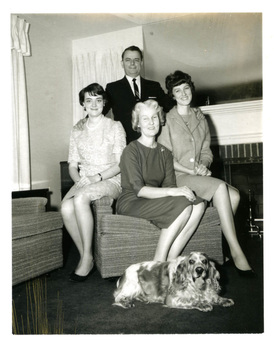By Jody Brumage
Senator Robert C. Byrd dedicated the Wheeling Heritage Port on August 15, 2001, a major project of the Wheeling National Heritage Area. In a statement delivered at the event, Senator Byrd declared the city of Wheeling to be “a cornerstone of history, a place where countless lives converged, in a busy, bustling collage of commerce. Thousands passed through this portal searching for their destiny.” Wheeling is one of West Virginia’s major cities, located in the state’s northern panhandle at its border with Ohio. Strategically located at a crossing of the Ohio River, the city grew as an important trade post for settlers moving into the Northwest Territory in the late 18th century. During the Civil War, strong anti-slavery sentiment among the city’s citizens made it a center for the fight for West Virginia statehood. From 1861-63, Wheeling was the seat of the “Restored Government of Virginia” and with the recognition of West Virginia statehood by the U.S. Congress in 1863, it became the first capital of the new state. By Ray Smock
The Rules of the U. S. House of Representatives provide a device to remove a Speaker from his job. Last week a member of the House, Mark Meadows (R-NC) filed a motion to vacate the chair which would challenge the leadership of Speaker John Boehner (R-OH) and call for a new election for the speakership. As I write this there is no way to know if this is a minor tempest in a teapot or not. But the timing of the resolution and the fact that it was referred to committee and not brought up as a privileged resolution is a good indication it may go nowhere. But theresolution itself shows how one member, at least, feels about Speaker Boehner’s leadership. Click here to read the article from The Washington Post Reporters have been asking how common such a motion has been in House history and if it has ever been used before. The closest example in history occurred 105 years ago when Speaker Joseph Gurney Cannon (R-IL) had his leadership challenged by a member of his own party George W. Norris (R-NE). But the circumstances were not exactly the same. On St. Patrick’s Day, March 17, 1910, and running for two days, the progressive wing of the Republican Party staged a successful revolt against the strong authoritarian rule of Speaker Cannon. “Uncle Joe,” as everyone called him, wielded more power than any other speaker, with the possible exception of his predecessor Thomas Brackett Reed (R-ME). Both Reed and Cannon were often referred to as “Czars” for their dictatorial styles and centralized control of House procedures. Reed was famous for his “Reed’s Rules,” which strengthened the majority party’s control of the House and ended obstructionist tactics from the minority party. During Cannon’s speakership from 1903 to 1911 he had broad powers to appoint committee chairs and to completely control the Rules Committee with his hand-picked lieutenants. |
Welcome to the Byrd Center Blog! We share content here including research from our archival collections, articles from our director, and information on upcoming events.
Categories
All
Archives
July 2023
|
Our Mission: |
The Byrd Center advances representative democracy by promoting a better understanding of the United States Congress and the Constitution through programs and research that engage citizens.
|
Copyright © Robert C. Byrd Center for Congressional History and Education
|


 RSS Feed
RSS Feed
